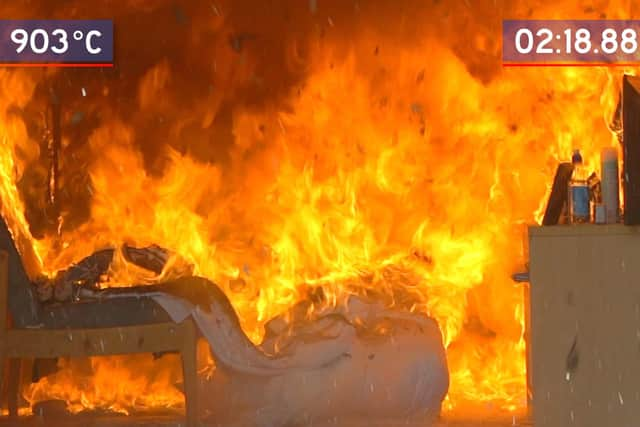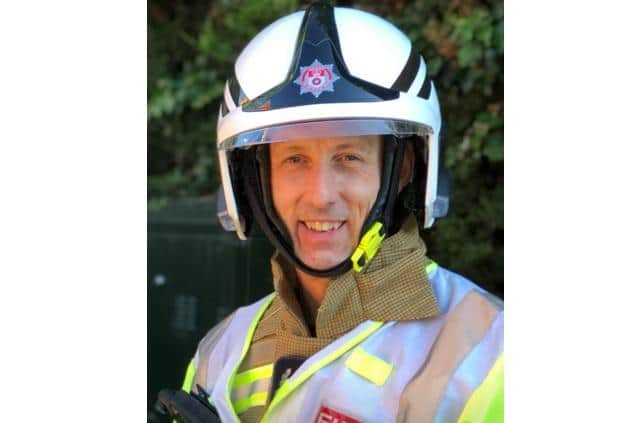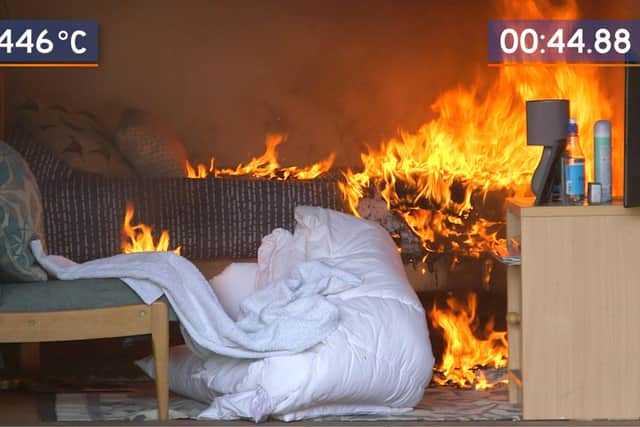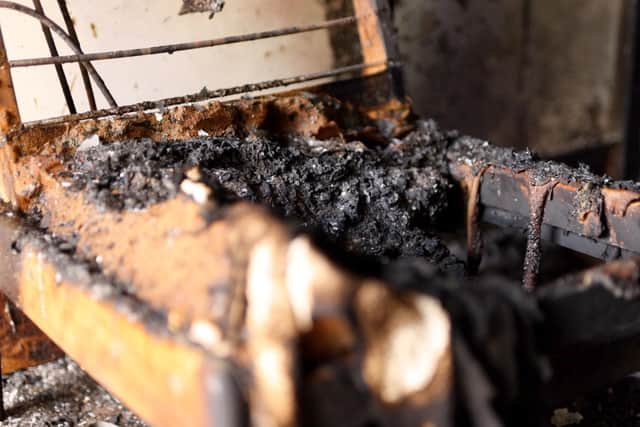Trailblazing Portsmouth scheme shocks arsonists out of a life of crime with terrifying fire video
and live on Freeview channel 276
For months, teams from University of Portsmouth and Hampshire and Isle of Wight Fire and Rescue Service (HIWFRS) have been working side-by-side on an ambitious programme to cut arson attacks in the area.
The partnership has been running the FIRE-P course, which stands for Firesetters’ Integrated Responsive Educational Programme.
Advertisement
Hide AdAdvertisement
Hide AdPart of the first service’s arson task force, the scheme sees those caught setting fires taking part in a hard-hitting course showing how lethal blazes can be.


And the programme has proven so successful that none of the 200 people to have taken part in it having gone on to commit another arson, the fire service confirmed.
Portsmouth’s success is now set to be rolled out and shared with other fire and rescue services nationwide, in a huge endorsement for the trailblazing partnership.
FIRE-P manager, Shane Blampied, said: ‘The success of FIRE-P is making life safer for people across our communities.
Advertisement
Hide AdAdvertisement
Hide Ad

‘Our partners from the University of Portsmouth have played a vital role in making sure the programme has been developed and evaluated, so that we know it really works.’
At the centre of the course is a dramatic video that shows the terrifying speed in which a fire can get out of control.
The live fire demonstration – filmed under the supervision of HIWFRS – reveals how a mocked-up bedroom becomes engulfed in flames in under three minutes.
As the window cracks, a rush of oxygen causes the blaze to intensify, with temperatures rising to more than 1,000 degrees Celsius within seconds.
Advertisement
Hide AdAdvertisement
Hide Ad

Area manager Jason Avery, HIWFRS’s assistant director for prevention and protection, said the course had shone a light on the dangers of setting deliberate fires.
‘Some of those who commit arson offences have no idea about how quickly a fire can get out of control, ultimately putting themselves and others at risk of serious injury or death,’ he added.
‘The courts now have the option to impose a mandatory requirement for an offender to participate in FIRE-P as part of a custodial or non-custodial sentence.
‘We are very proud of the success of FIRE-P and are looking forward to sharing it with other fire and rescue services across the country.’
Advertisement
Hide AdAdvertisement
Hide Ad

The eight-session programme focuses on different elements of fire-setting, including the mechanics of fire and the motives and consequences of arson, before the participant has a session on victim awareness and empathy.
The educational-based awareness training has been created for those who have a history of arson or are considered to have an unusual fascination with fire.
Dr Dominic Pearson, from the University of Portsmouth, said: ‘People who set fires deliberately are known to be ill-educated regarding fire safety and the wider consequences of fire-setting.
‘The FIRE-P fills a void in such intervention programmes with adults outside secure psychiatric facilities.
Advertisement
Hide AdAdvertisement
Hide Ad‘While more needs to be done, our research shows that the success of the programme in Hampshire far-exceeds predictions based on the offenders’ profiles.’
